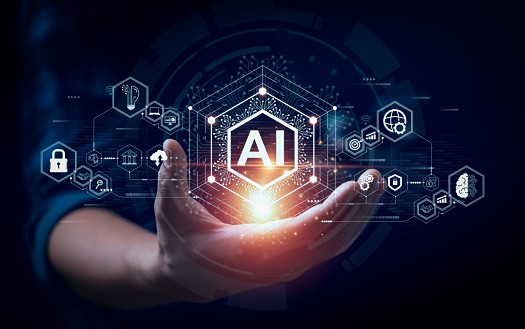
The Rise of Artificial Intelligence
Artificial Intelligence (AI) has rapidly transformed numerous industries, from healthcare to finance. AI systems can now analyze massive data sets, make predictions, and even perform tasks traditionally done by humans. As machine learning and neural networks continue to evolve, AI’s potential for innovation seems limitless, but it also raises concerns about ethics, job displacement, and the future of human roles in the workforce.
The Future of Renewable Energy
With climate change posing an ever-growing threat, renewable energy sources such as solar, wind, and hydropower have taken center stage in the global effort to reduce carbon emissions. The future of energy will likely be dominated by cleaner, more efficient technologies. Innovations like energy storage solutions, smart grids, and sustainable biofuels could significantly reduce reliance on fossil fuels and combat global warming
Mental Health Awareness in the Workplace
Mental health is increasingly being recognized as crucial to overall well-being, yet it remains a topic often overlooked in professional environments. Employers are starting to prioritize mental health resources, offering counseling services, flexible work arrangements, and fostering a more open dialogue around stress, anxiety, and depression. These efforts are vital to creating a more productive and supportive workplace culture.
The Impact of Social Media on Society
Social media has fundamentally changed how people communicate, share information, and even form opinions. While it has brought people together globally, it has also contributed to issues like misinformation, cyberbullying, and mental health challenges. Striking a balance between the positive and negative effects of social media remains a challenge for individuals and society at large.
The Importance of Financial Literacy
In a world where personal finance decisions can significantly impact one’s quality of life, financial literacy is more important than ever. Understanding concepts such as budgeting, saving, investing, and credit management helps individuals make informed choices. Educating the public about financial matters can empower people to achieve financial stability and avoid common pitfalls like debt.
The Evolution of E-commerce
E-commerce has seen exponential growth, especially in the wake of the COVID-19 pandemic. Online shopping offers convenience, variety, and access to global markets. However, as the industry matures, challenges such as competition, customer experience, and sustainability have become increasingly important. Innovations like AI-driven personalization and augmented reality (AR) shopping experiences are shaping the future of e-commerce.
Sustainable Agriculture and Food Security
As the world’s population continues to grow, ensuring that we can produce enough food while maintaining environmental sustainability is becoming a critical issue. Sustainable agriculture practices focus on reducing resource use, minimizing waste, and protecting biodiversity. These practices, alongside innovations in vertical farming and lab-grown meat, are seen as key solutions to future food security challenges.
The Role of Women in Leadership
Women’s representation in leadership positions has been steadily increasing, but gender parity in executive roles, politics, and academia remains a significant challenge. Promoting diversity and inclusion in leadership not only helps ensure fairness but also leads to better decision-making, innovation, and business success. Ongoing efforts to dismantle gender biases and support women’s career advancement are crucial for a more equitable future.
The Gig Economy and the Future of Work
The gig economy, characterized by short-term, freelance, or contract work, is changing how people think about employment. For many, gig work offers flexibility, independence, and the opportunity to explore multiple income streams. However, it also presents challenges, including job insecurity, lack of benefits, and inconsistent pay. As this sector grows, discussions about worker rights, benefits, and protections are becoming more urgent.
The Importance of Physical Fitness in Modern Life
In today’s fast-paced, sedentary world, maintaining physical fitness is essential for both mental and physical health. Regular exercise not only helps prevent chronic conditions like heart disease and diabetes but also boosts mood, energy, and cognitive function. Incorporating physical activity into daily routines can enhance quality of life, improve productivity, and reduce stress levels.


